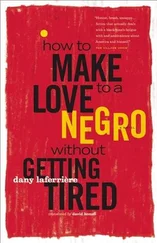Suddenly Santiago started shouting to attract the guards’ attention.
‘I’m starving here! You arseholes, I hope they cut your throats out there. Fucking cowards! Chickens! That’s what you are. When the Moroccans catch you, you’re going to pay for what you’re doing to me now.’
He was shouting as if possessed. Even his voice sounded like it belonged to someone else. Guillermo took a step back, looking for the door. He didn’t know what to say or do. The door opened and the same soldier as before appeared holding his Cetme rifle with a finger on the trigger. As soon as Guillermo saw him, he slipped out, trying to conceal his unease. The door closed and it was quiet again. The Land Rover drove away and was soon out of sight.
Alone again, Corporal San Román held the window bars and pressed his mouth and nose against them to catch the fresh air. A dry pleasant wind made it difficult to believe that autumn was at an end. The smell of the earth, after the recent rains, was more intense than ever. A flaky moon cast its light over the distant dunes, revealing the cunning foxes. The lights of the runway slanted towards the barracks. For a moment Santiago saw Andía’s image, as clearly as if she were in front of him. He thought he could hear her voice and smell her dark skin. The echo of a far-off bugle broke the silence and dispelled the image of the girl. Inexplicably, the legionnaire felt a pleasant sensation that made him appreciate the air blowing on his face. The smell gave him strength and transported him far away from the aerodrome, above El Aaiún and the Sahara. With his eyes half-closed, he recognised the sensation as the same one that had coursed through his whole body, like a shiver, on a certain September morning in 1974, when the hatch of the Hercules had opened noisily and the ramp came down, leading out into the most beautiful and dazzling of deserts. In Zaragoza, he’d had to put up with the north wind for as long as he was stationed there; he would never have imagined that what awaited him on the runway at El Aaiún would change him for ever. In a few hours he went from living under a pale winter light to the deep blue of the Saharan sky. All ninety-three soldiers who had voluntarily transferred from the army to the Legion remained seated on the benches of the Hercules, motionless, until the voice of a sergeant with a Seville accent shook them out of their daydreams.
‘Everyone stand up,’ bellowed the legionnaire. And all ninety-three novices stood up at once, before he’d even finished the sentence. But Santiago San Román’s mind was already outside the C-130. He almost floated down the ramp, carrying his bag and unbuttoning the top of his shirt like the legionnaires that waited below with their chests stuck out, chins cocked and eyes staring straight ahead. He placed himself in the first row, was the first to fall in line and so was the first to feel the warm December air — the warmest of Decembers, so different from the one in his native Barcelona. His whole body tingled as he took everything in out of the corner of his eye. Among the various flags and insignia, the uniforms of the Territorial Police attracted his attention: those pale army jackets which brought out the Saharawi’s dark skins. Opposite him was the office building. An enormous balcony crossed it from one end to the other, almost as high up as the roof, and the men on the balcony were dressed in black and blue turbans and long djellabas 6, as if to enliven the monotonous reddish tinge of the landscape. The purring of the Land Rover, the noisy propellers of the Hercules, the instructions coming through the loudspeakers all seemed like a play staged for the new arrivals, rehearsed for years for the benefit of the young soldiers who came from the Iberian peninsula. He felt as though it had all been there for centuries, awaiting the moment that Santiago San Román got off the plane to see it. The desert and the Saharawis’ faces struck him as the oldest things on the planet. Everything fitted together: the landscape, the light, the faces of the native people. However, he came back to reality when he saw Guillermo’s pale face, his faithful friend Guillermo, whom he had only known for forty days, but from whom he had become inseparable. Guillermo was very pale and found it hard to remain standing. Santiago realised that his friend had had a rough flight. He hissed to attract his attention, but Guillermo barely raised his eyes and kept his gaze fixed to the floor. Santiago San Román felt somewhat responsible, because had it not been for him, his friend would now be posted somewhere quiet in Zaragoza, sitting out the months until he was discharged and collected his pay. But he, Santiago, had interfered, as had that legionnaire, a second lieutenant who had appeared in Zaragoza and spoken to them about the Legion, showing them his tattoos, a few photographs and a Super-8 film in which the legionnaires marched with a martial step, their chests puffed out; at that moment Santiago had decided that Zaragoza was not far enough from Barcelona. He did a mental calculation of the distance between the Saharan province and his neighbourhood and concluded that he could not possibly get any further away. That evening he rang Montse’s house once again, to let her know that he was leaving to go to the end of the world. But once again he was told that she was away. They were lying, and he knew it all too well. He slammed the phone down as hard as he could. He tried to tear Montse’s image into a thousand little pieces. Unable to sleep, he tossed and turned in his bed all night, right next to Guillermo. After reveille was sounded and he had a moment, he went straight to the recruitment office and said the second lieutenant: ‘Sir, I want to become a legionnaire.’ And the lieutenant, without asking him to repeat it, warmed up his ballpoint pen with his breath and wrote down Santiago San Román’s name. Then he asked: ‘Can you sign, lad?’
‘Yes, sir.’ The legionnaire turned the page and pointed to where it said ‘signature and printed name’, and Santiago San Román put his name down, for he wanted to go to the end of the world, get a tattoo like the second lieutenant’s, which read ‘A mother’s love’, and forget Montse, never to return.
But now, seeing Guillermo’s gaunt and anxious face, he wasn’t sure that he’d done the right thing dragging his friend along with him, the first true friend he’d had in a long time. Still, it had been Guillermo, not him, who had insisted on volunteering to the Legion on seeing Santiago’s recently signed piece of paper. Santiago was touched just thinking about it. No one had ever done anything like that for him.
The music coming through the loudspeakers of the aerodrome caught his attention. The first few bars of that paso doble turned his stomach and also disconcerted him. Like the wines from Jerez and from Rioja, went the song. The energy of the music was in sharp contrast to the soldiers’ exhausted bodies. Are the colours of the Spanish flag. On command they started loading their bags onto the two trucks at the end of the runway. When I’m on foreign land and see your colours… Santiago San Román could not think straight. And think of your exploits… It was as though Montse’s face were right in front of him. See how much I love you.
‘What did you say?’ she had asked, her eyes fixed on his own.
‘See how much I love you,’ he had replied. And she had touched her lips to his in a way that he’d never felt before. And he had repeated, ‘See how much I love you.’ But now this devil of a sergeant was shouting at them by the truck, flailing his arms like a crazy windmill, spitting insults at the new legionnaires to hurry them up. Santiago San Román’s pride was hurt. He climbed up the truck and jumped in, then grabbed his bag and went to sit at the back, on top of the spare wheel. He pushed Montse’s image out of his mind by taking a look around. The Saharawis’ faces were the colour of the earth they trod on. For a second he thought they were one and the same thing. It looked as though the older ones, idling away the hours in the shade outside the military building, had been there all their lives. They shaded their eyes with their hands and looked at the new soldiers with a mixture of compassion and indifference. The truck pulled out, and the music died away behind it. The passage of the vehicles whipped up a mountain of dust. At the side of the road, the few surviving bushes were completely white. It was a short journey: soon the first houses of El Aaiún came into view. Santiago San Román saw a woman wearing a brightly coloured melfa and caught his breath. She walked with her head held up, in a straight line, holding a cloak in her hand, as if she were on a catwalk in Paris. She didn’t even turn when the truck passed by. Her image receded into the distance as they pressed on along the city streets. Santiago San Román didn’t know where to look.
Читать дальше




![Ally Carter - [Gallagher Girls 01] I'd Tell You I Love You But Then I'd Have to Kill You](/books/262179/ally-carter-gallagher-girls-01-i-d-tell-you-i-lo-thumb.webp)







